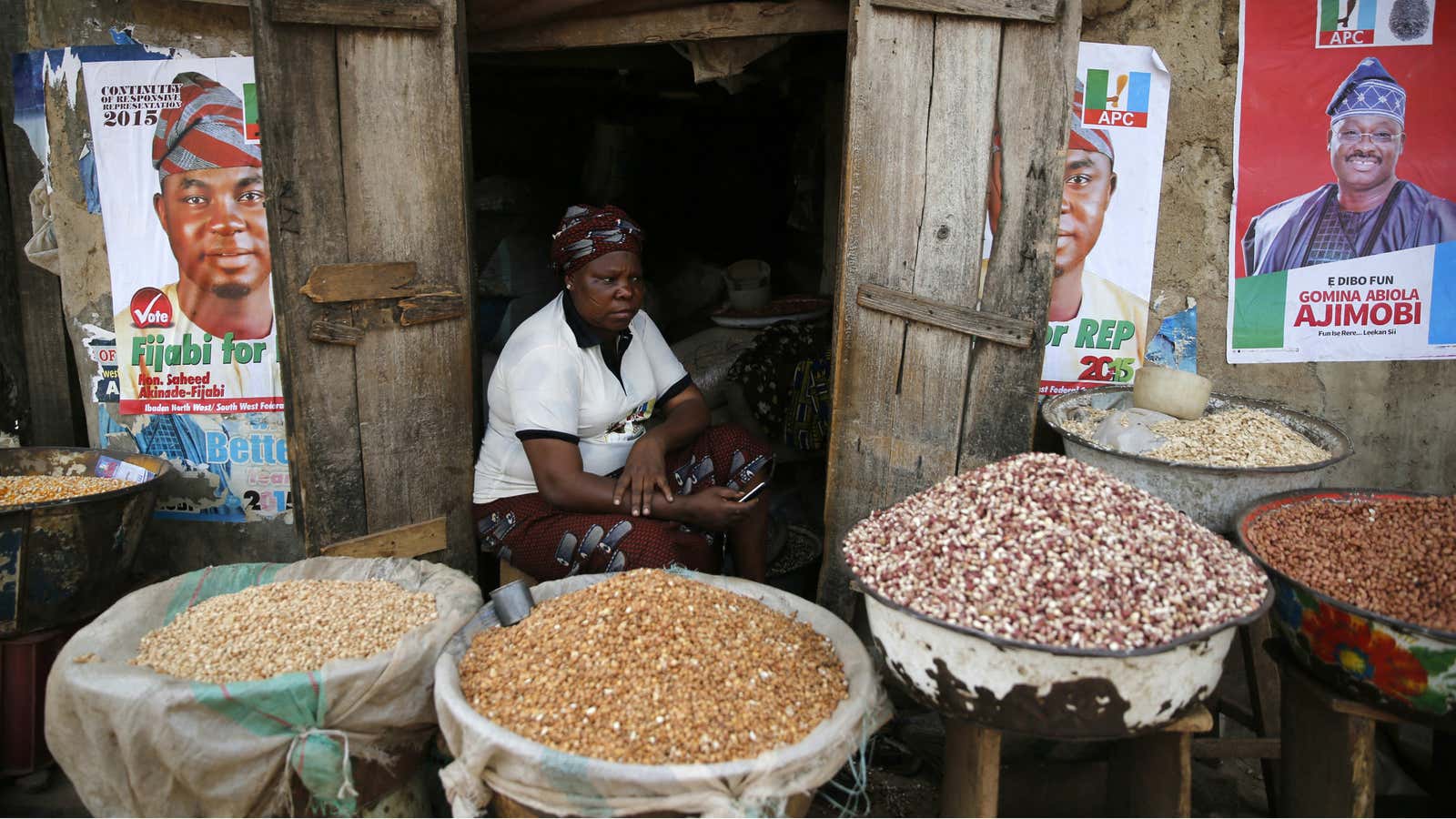As oil prices have fallen globally, Nigeria’s economy has been badly hit as oil revenue accounts for a majority of its earnings. The fallout have been dire: capital flight, domestic fuel shortages and shrinking foreign reserves. All of these have combined to result in the economy nearly grinding to a halt as growth fell to its lowest point since 1991 in the first quarter of the year.
The decline follows on preceding quarters as the economy experienced negative growth, data from the National Bureau of Statistics shows.
While the downturn for Africa’s biggest economy is undoubtedly caused by the fall in global oil prices it has been worsened by the government’s response, said analysts.
“The cause of the growth collapse is the policy reaction to the fall in oil prices,” Nonso Obikili, research associate at Economic Research Southern Africa says. “Specifically the foreign exchange policy which has led to a collapse in investment, and the failure to quickly resolve the fuel supply issues by liberalizing fuel prices.”
The contraction of Nigeria’s economy in the first quarter appears to be in line with forecasts made by the IMF which projected Nigeria’s economy to grow at 2.3% this year.
As businesses struggle to stay afloat despite the economic realities, an inevitable offshoot has been a loss of jobs. With half a million losing their jobs in the first three months of the year, data from the National Bureau of Statistics showed the unemployment rate once again rose, as it has in the preceding five quarters.




